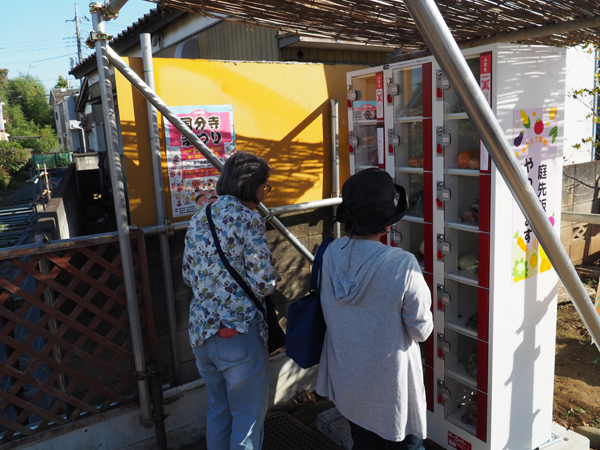Supporting farmers’ eaves sales NTT Agri Technology

NTT AgriTechnology will provide vegetable vending machines and provide sales support. The main purpose is to prevent theft when farmers and other producers sell vegetables outside their eaves.
The vending machines are locker-style, and the company provides them free of charge to producers. They earn a portion of each month’s sales in the form of a commission.
Mr. Takuya Nakayama of the company said, “The price of locker-type vending machines ranges from several hundred thousand yen to over one million yen.The initial cost is high, which is a hurdle for producers. By providing this service free of charge, we will make it easier for producers to accept the service”.
The first user of this service is Shimazaki Farm, which produces Tokyo udon, tomatoes, and eggplants in Kokubunji, Tokyo. On November 1st, an unpowered locker-type vending machine was installed in front of the eaves and began selling vegetables.
Takayuki Shimazaki said, “The eaves vending system has been plagued by theft and underpayments.In the past, we considered installing vending machines, but we couldn’t agree on the price and decided against it.If NTT Agri-Technology’s billing model was based on the sales amount, They are easy to implement.Introducing vending machines not only prevents theft and underpayments, but also makes it easier to manage sales”.
At Shimazaki Farm, eaves sales account for 10% of total sales. On the other hand, theft and underpayment caused losses of approximately 100,000 yen annually. In some cases, the damage amounted to 3,000 yen per day.
“If we can reduce these risks by introducing vending machines, it will be easier to deliver fresh vegetables harvested in the morning to consumers. We want to increase sales from eaves sales to 20% of the total,” said Shimazaki.
NTT AgriTechnology plans to popularize vegetable vending machines with “no initial cost and sales-linked model” throughout the country.
Mr. Nobuhisa Yoshida of the company said, “Sales at the doorstep is a sales channel where production and consumption are close, and it can also be a measure to revitalize the entire region.We will create a local food value chain business in cooperation with local governments and agricultural organizations”.
Mr. Nakayama said, “We have our own farm and are engaged in production and sales.We would like to pass on the know-how we have gained there to the producers who have installed our vending machines.We will work with them to increase sales from a long-term perspective”.
For example, if more producers set up vending machines in Kokubunji, we are planning initiatives to energize the entire area, such as organizing tours of Kokubunji’s eaves selling.
